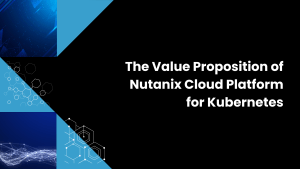Public cloud rivalries have spawned a surprising early favorite, and it’s none of the usual suspects — Amazon Web Services Inc., Microsoft Corp.’s Azure or Google LLC’s Cloud Platform — nor is it a hot startup.
Rather, VMware Inc., the 20-year-old virtualization pioneer, has become the go-to partner in the hybrid-cloud market. In the race to migrate enterprises’ workloads from on-premises platforms to their respective clouds, the leading public cloud providers have each enlisted VMware as their strategic “lift and shift” partner. That helps explain why, in an interview with VMware Chief Technology Officer Ray O’Farrell on SiliconANGLE video studio theCUBE, the company prides itself on being a “little bit of a Switzerland” in the multicloud arena.
Considering how central the public clouds have become to VMware’s business strategy, SiliconANGLE sister market research firm Wikibon expects to see these partnerships as the central focus at the upcoming VMworld conference, which will take place Aug. 25-29 in San Francisco. As VMware Chief Operating Officer Sanjay Poonen recently tweeted, the top five public cloud providers — AWS, Microsoft, Google, IBM Corp. and Alibaba Group Holding Ltd. — have all partnered with the company.
AWS: first VMware public-cloud partner among equals?
Most of these public cloud providers are making significant investments in the VMware partnership.
This is most obvious with the AWS partnership, which is now two years old and has steadily deepened in practically every direction, most notably through a spate of announcements at last year’s AWS re:Invent conference. The heart of this partnership is VMware Cloud on AWS, a hybrid cloud service that runs VMware’s software-defined data center stack in the AWS public cloud. Within this service, AWS provides the elastic, bare-metal infrastructure on top of which VMware deploys its SDDC stack, which includes NSX, vSphere and vSAN.
VMware is will keep AWS at the forefront of its partnering strategy, for the simple reason that the bottom-line potential from engaging the public-cloud leader is so much greater. Much of the focus will be on making money from the significant investments that both companies have already made in technical integration.
To that end, the partners earlier this year announced that they have made their VMware Cloud on AWS more widely available by opening it up to Amazon’s partner network as well as AWS’ own salesforce. Customers can now purchase VMware Cloud on AWS directly from AWS and from companies in the AWS Partner Network that are certified under its Solution Provider Program, whereas previously the service could only be bought directly from VMware. In addition, AWS recently launched a new partner enablement track for VMware Cloud on AWS to help its partners build expertise in supporting customer projects that rely on the service.
Microsoft Azure: closing its VMware integration parity gap with AWS?
Though the AWS partnership has a significant head start, Microsoft’s newly resurgent collaboration with VMware is one of the biggest hybrid-cloud industry stories this year. Technical integration between their product portfolios will probably be the focus of the VMware/Azure partnership for the remainder of this year.
The most noteworthy milestone in that regard was the April announcement of an expanded partnership that makes a “native, supported and certified VMware experience” available on the Microsoft Azure platform. Specifically, the new Azure VMware Solutions enable users to run native VMware-based workloads on Azure, as enabled through CloudSimple technology.
Mutual customers can run, manage and secure applications across VMware environments and Microsoft Azure with a common operating framework while leveraging existing investments in VMware’s vSphere, vSAN, NSX and vCenter solutions. Nevertheless, Microsoft has far to go if it hopes to catch up with AWS in its degree of VMware integration. It will need to go deeper than simply leveraging CloudSimple for that integration.
Legacy modernization will remain a key focus for Microsoft Azure as it uses VMware’s solutions to lift and shift enterprise customers’ apps and workloads into its public cloud. Delivered and supported by Microsoft, Azure VMware Solutions enable customers to extend and redeploy their VMware workloads on Azure dedicated hardware without having to refactor their applications. Customers can also modernize VMware workloads on Azure via integration with Azure’s Active Directory, AI and “internet of things” services.
Google Cloud Platform: Will VMware partnership boost its momentum?
Google’s partnership with VMware has become a huge focus for that public cloud provider as well. For Google Cloud Platform, which is struggling to catch up with AWS and Microsoft Azure in public cloud market share, there is a lot at stake.
Apart from attempting to achieve VMware integration parity with AWS and Microsoft Azure, it’s not clear what GCP can do within the context of the partnership to give it a competitive edge in the public cloud wars. Nevertheless, GCP’s recent string of VMware partnership announcements is noteworthy for the breadth and depth of investments that both vendors are making in their respective solution portfolios.
Last week, GCP announced a new solution that will enable mutual customers will be able to run their VMware workloads in Google Cloud Platform. The new solution, to be made available later in the year through Google Cloud Marketplace, leverages VMware Cloud Foundation infrastructure software. It will give joint customers the option of running both VSphere virtual machine-based workloads and Anthos-based containerized apps in hybrid-cloud deployments. Using technology sourced from a VMware cloud verified partner called CloudSimple, the solution leverages VMware’s vCenter, NSX-T and vSAN products to virtualize server, network and storage resources across hybrid clouds. GCP will provide first line of support in conjunction with CloudSimple to ensure that migrated workloads and applications enjoyed enterprise-grade service levels.
This latest announcement follows key GCP/VMware partnership news this past spring. In early April, Google announced that its new Anthos hybrid-cloud solution would run on VMware vSphere and support management of persistent storage volumes on VMware vSAN for on-premises stateful containerized workloads. At that time, Google also announced GCP integration for VMware NSX Service Mesh and SD-WAN by VeloCloud, enabling customers to deploy and gain visibility into hybrid workloads easily. A few weeks earlier, Google announced a plugin for VMware vRealize Automation to support unified deployment, orchestration and management of GCP resources within hybrid-cloud deployments.
Bear in mind that this partnership is not just a recent phenomenon. Last year, GCP and VMware previewed a plugin that enables VMware users to provision Google Compute VMs and storage buckets to Google’s cloud, though it doesn’t support provisioning of VMware VMs to GCP. Using the plugin, VMware users can configure Google VMs for specific application needs, including enabling access to Google Compute Engine’s Nvidia Tesla P100 graphics processing units, which can be used to accelerate the training of machine learning models. The plugin also supports other information technology infrastructure setup, resource configuration and automated application delivery, and container management provisioning capabilities from VMware into Google Cloud Platform.
Furthermore, Google announced a partnership with VMware two years ago to bring Kubernetes container orchestration on-premises with Pivotal Container Service. An early look at the VMworld schedule shows over 100 sessions focusing on Kubernetes, so expect much more than PKS to be discussed.
There will certainly be other partnership news at VMworld 2019, as well as announcements concerning how VMware intends to integrate newly acquired technologies from Bitfusion, Avi Networks, Bitnami, AetherPal, Heptio, CloudHealthand others into its hybrid-cloud portfolio.
TheCUBE will be interviewing executives, developers and other industry figures at the event. To stay informed, check out the livestreamed interviews on Aug. 26-29.


